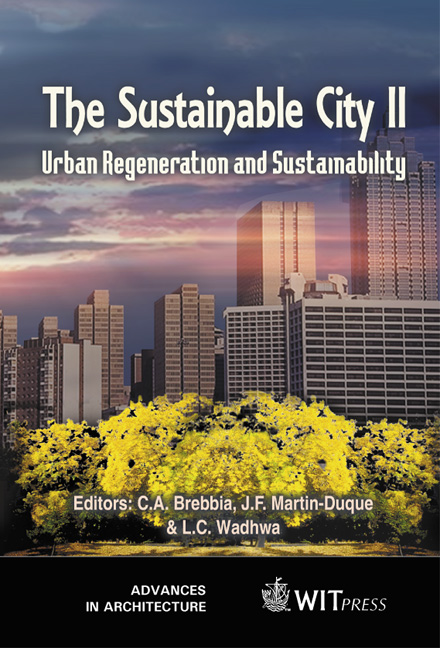Global Perspectives In Sustainable Urban Environments
Price
Free (open access)
Transaction
Volume
54
Pages
Published
2002
Size
503 kb
Paper DOI
10.2495/URS020011
Copyright
WIT Press
Author(s)
L C Wadhwa
Abstract
Arguably, sustainability is the most commonly used word in the literature today. Every project, plan, action, policy or strategy formulated by government agencies and large organisations must address the issue of sustainability, even if inconsequentially. City councils are at the forefront of urban sustainability movement. Some of their activities have significant and far-reaching effects while others appear good for public relations/propaganda only. The projects usually focus on one or more of the four elements of sustainability: resource conservation, transportation, protection of the environment and public health, or land-use planning and economic development. In this paper, a review is made of a large number of sustainable city projects/plans from around the world. The aspects of sustainability covered by the various projects are discussed. 1 Introduction A sustainable city is a city meeting its current needs without compromising the ability of future generations to do the same. A sustainable city provides a relatively higher quality of life. The essential components of sustainable cities include environmental integrity, quality of life, economic security and democratic participation. It is recognized that we live in a period of great environmental crisis. There is an urgent need to create the basis for a more sustainable way of life both locally and globally through the safeguarding and enhancing of resources and by preventing harm to the natural environment and human health. It must be resolved that our impact on the natural environment will not jeopardize the prospects of future generations. White [l] argues that it may be impossible to realise the \“misleading optimism” of sustainable urban living. It certainly will
Keywords





